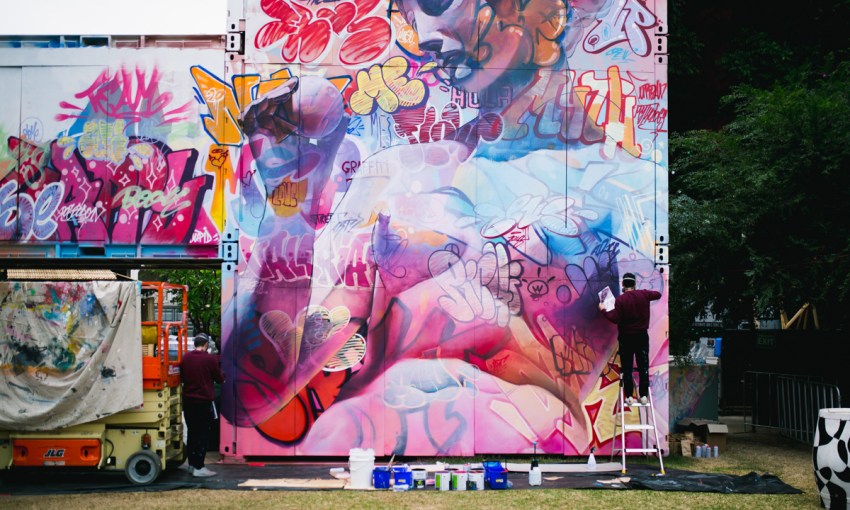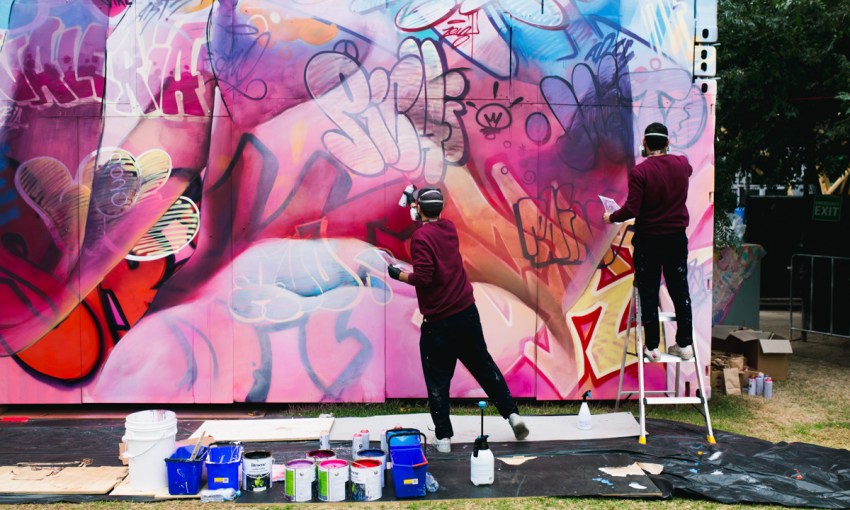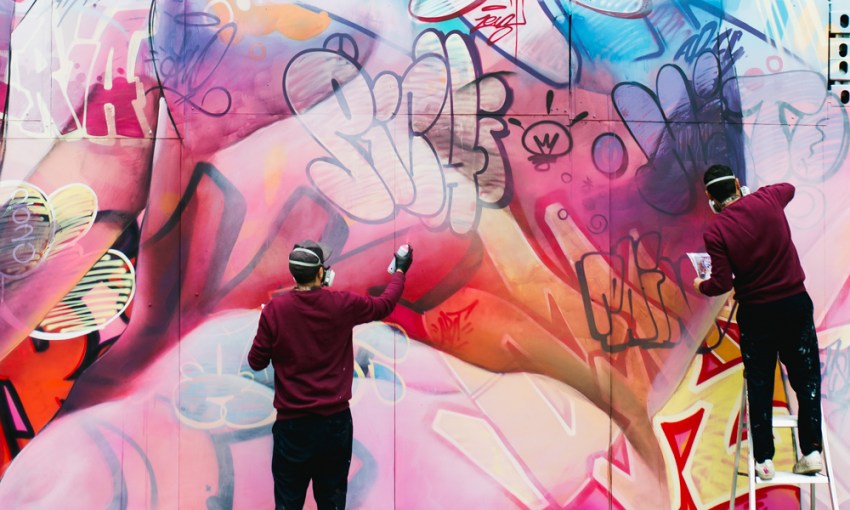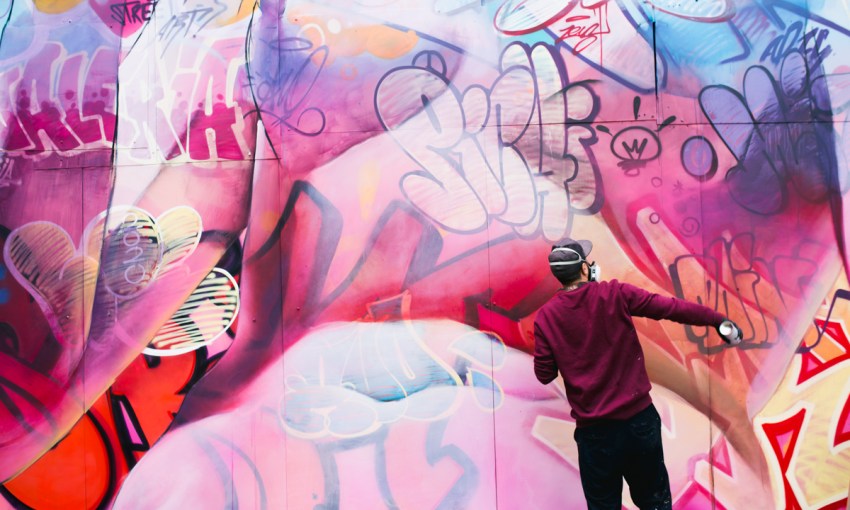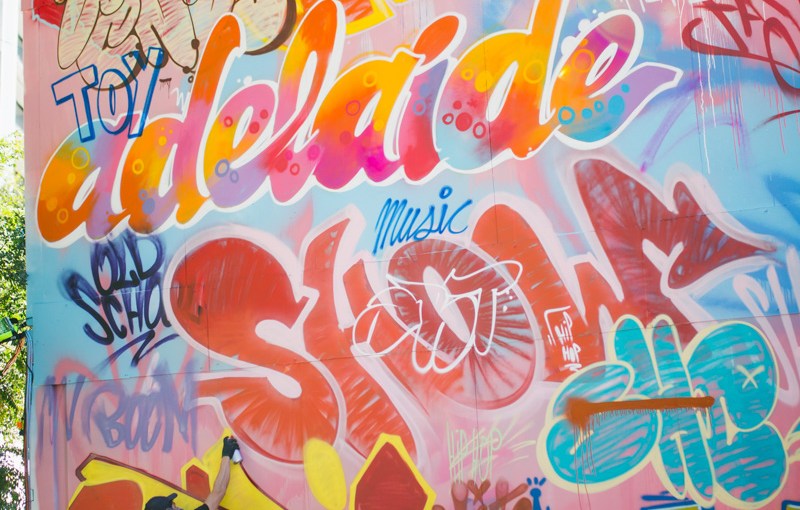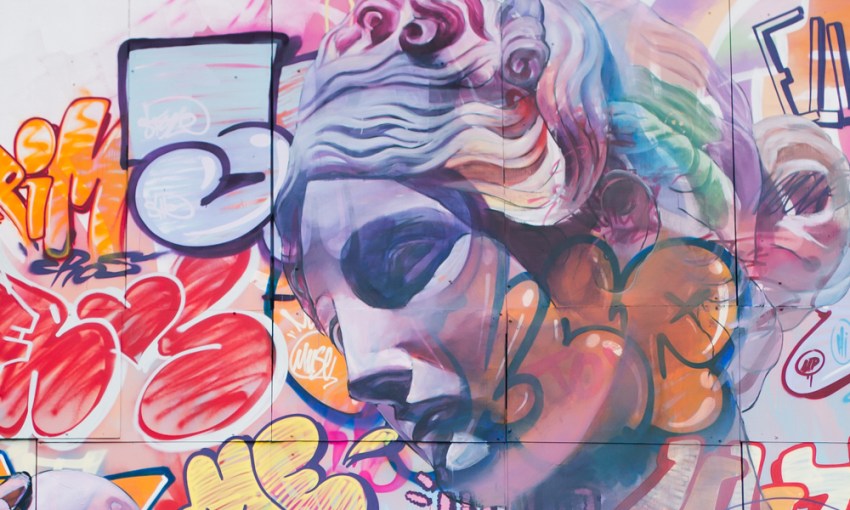RCC's visual arts curator Dave Court has blended visual and aural art forms in the festival's Utopia activation, bringing over Spanish street artists PichiAvo to contribute to the space.
How Spanish street artists PichiAvo came to RCC
As part of artist Dave Court’s role as visual arts curator with RCC this year, he was gifted with seven shipping containers stacked within RCC’s Utopia activation.
RCC’s Utopia
See more on RCC’s final shows here.
Utopia is a pop-up music venue, with a live music main stage towards the Frome Road end of the University of Adelaide’s Maths Lawns and the smaller Neon stage at the campus end, which focusses on electronic music.
The seven shipping containers were placed between the two stages to aid in keeping the sounds from each stage separated – but where there is a surface, there is also opportunity for a visual arts curator to intervene.
Dave had been working with Joel van Moore on Wonderwalls Festival and decided to bring participating Spanish artists PichiAvo (Juan Antonio Sánchez Santos is Pichi, Álvaro Hernández Santa Eulalia is Avo) into the Utopia space to create a graffiti-influenced piece on the enormous sound barrier.
“These guys have done festival stuff all around the world, and shipping container paintings are something they’ve done before, so it fit well,” Dave says.
The artists regularly draw on themes of Greek mythology, while trying to incorporate something from the place they’re working.
For the RCC piece, there was an easy connection.
“In this case it’s a party, and this case it’s when Aphrodite got the golden apple,” Avo explains.
“The meaning of that is when someone gets [the golden apple], it’s the most beautiful one, so that’s how she gets that. That happened in a party, this is a party – why not mix that.”
For Dave and PichiAvo, bringing visual art into a music-oriented space is a way of asking a general population who might not otherwise seek out visual art to consider how it can improve their experience of a space, and to connect with it on a personal level.
“Wonderwalls is a street art festival where people who are into street art go out and see that; or if it’s in an art gallery, people who are likely to go into an art gallery are likely to see that,” Dave says.
“But if you have art in a space like this, it’s people that might not see [or] engage with art at any other time, and they’re not forced to, but it’s an opportunity for them to engage with it and see something that they might not have seen before, or wouldn’t ordinarily see.”
At the end of the festival, which closes this weekend, the stack of shipping containers will be dismantled, and the entirety of the RCC setup will be loaded into them. Whether the artwork will ever exist in its current form again is of little concern to the artists.
“That’s a normal thing for us. We work in the streets, so you do something and it could last one day or one year or 10 years… You do something for people in a moment that they can enjoy,” Pichi says.
RCC’s final weekend is about to kick off, with Cut Copy on Friday night, Haiku Hands on Saturday night, and Golden features closing the festival season out on Sunday night.



